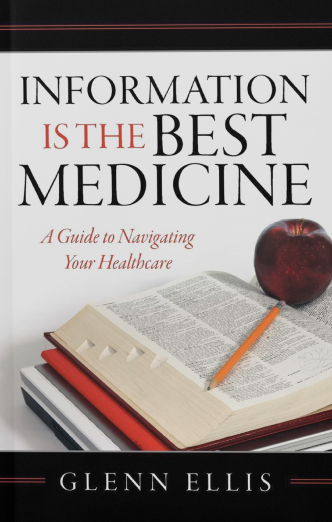
In 2010, there were about 410,000 dialysis patients in the United States.
But did you know African Americans are at increased risk of developing chronic kidney disease (CKD) leading to dialysis and transplant? Compared to other ethnic groups, the African American population has higher rates of diabetes and high blood pressure, which are the two leading causes of kidney disease.
Based on data from 2009, African Americans account for 67 percent of prevalent dialysis patients, but only 39 percent of the prevalent transplant population.
Many African Americans already know they have diabetes or high blood pressure, but are not aware they may also have kidney disease. They are shocked to be diagnosed with kidney failure and then immediately begin dialysis. Even though their kidney disease progressed over time to kidney failure, it’s as if it happened all of a sudden.
Even though there is no single cause of chronic kidney disease, any condition or disease that damages blood vessels or other structures in the kidneys can lead to kidney disease. The most common causes of chronic kidney disease are:
• Diabetes. Diabetes causes about 35% of all chronic kidney disease. High blood sugar levels caused by diabetes damage blood vessels in the kidneys. If the blood sugar level remains high, this damage gradually reduces the function of the kidneys.
• High blood pressure (hypertension). High blood pressure causes another 30% of all kidney disease. Because blood pressure often rises with chronic kidney disease, high blood pressure may further damage kidney function even when another medical condition initially caused the disease.
Other conditions that can damage the kidneys and cause chronic kidney disease include:
• Kidney diseases and infections, or a kidney problem you were born with.
• Having a narrowed or blocked renal artery. The renal artery carries blood to the kidneys.
• Having an enlarged prostate gland, kidney stones, or a tumor that keeps urine from flowing out of the kidneys.
• Lead poisoning.
• Long-term use of medicines that can damage the kidneys. Examples include pain medicines, like acetaminophen (such as Tylenol) and ibuprofen (such as Advil), and certain antibiotics
Your kidneys play a key role in keeping your blood pressure in a healthy range, and blood pressure, in turn, can affect the health of your kidneys.
High blood pressure makes your heart work harder and, over time, can damage blood vessels throughout your body. If the blood vessels in your kidneys are damaged, they may stop removing wastes and extra fluid from your body. The extra fluid in your blood vessels may then raise blood pressure even more. It’s a dangerous cycle.

About 30 percent of people with diabetes will go on to develop kidney failure, while even more may be at risk of premature death from cardiovascular disease. Eighty to ninety percent of patients with type 2 diabetes also have hypertension, a major risk factor for diabetic kidney disease.
The kidneys are responsible for filtering waste products from the blood. Dialysis is a procedure that is a substitute for many of the normal duties of the kidneys. Another major duty of the kidney is to remove the waste products that the body produces throughout the day. As the body functions, the cells use energy. The operation of the cells produces waste products that must be removed from the body. When these waste products are not removed adequately, they build up in the body. An elevation of waste products, as measured in the blood, is called “azotemia.” When waste products accumulate they can cause a sick feeling throughout the body called “uremia.”
Once the kidney function drops to a certain level, dialysis becomes necessary. In the United States, there are over 200,000 people who use dialysis techniques on an ongoing basis. Dialysis helps the body by performing the functions of failed kidneys. The kidney has many roles. An essential job of the kidney is to regulate the body’s fluid balance. It does this by adjusting the amount of urine that is excreted on a daily basis. On hot days, the body sweats more. Thus, less water needs to be excreted through the kidneys. On cold days, the body sweats less. Thus, urine output needs to be greater in order to maintain the proper balance within the body. It is the kidney’s job to regulate fluid balance by adjusting urine output.
Diseases that increase your chance of developing kidney failure are diabetes, high blood pressure, heart failure, obesity, and long-term kidney disease (chronic renal insufficiency). If you have any of these conditions, take extra precautions when starting new medicines. Commonly used medicines, such as aspirin and ibuprofen (nonsteroidal anti-inflammatory drugs), can make kidney function worse in people who already have impaired kidney function, diabetes, high blood pressure, or heart failure.
Do what you can to reduce the chances of kidney failure. Some basic tips are:
Maintain your weight at a level close to normal. Choose fruits, vegetables, grains, and low-fat dairy foods.
Limit your daily sodium (salt) intake to 2,000 milligrams or lower if you already have high blood pressure. Read nutrition labels on packaged foods to learn how much sodium is in one serving. Keep a sodium diary.
Get plenty of exercise, which means at least 30 minutes of moderate activity, such as walking, most days of the week.
Avoid consuming too much alcohol. Men should limit consumption to two drinks (two 12-ounce servings of beer or two 5-ounce servings of wine or two 1.5-ounce servings of “hard” liquor) a day. Women should have no more than a single serving on a given day because metabolic differences make women more susceptible to the effects of alcohol.
Limit your caffeine intake. This includes sodas, chocolate, as well as coffees and teas.
If you have kidney damage, you should keep your blood pressure below 130/80.
